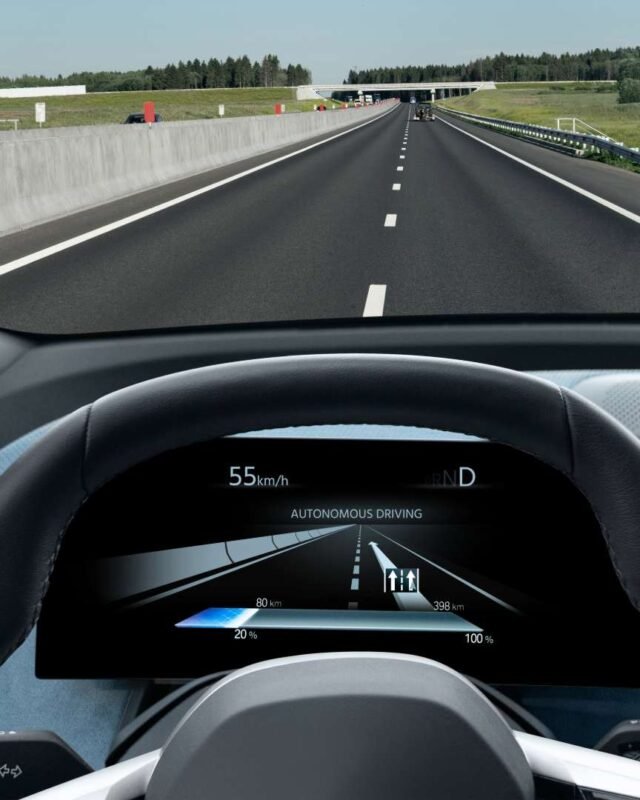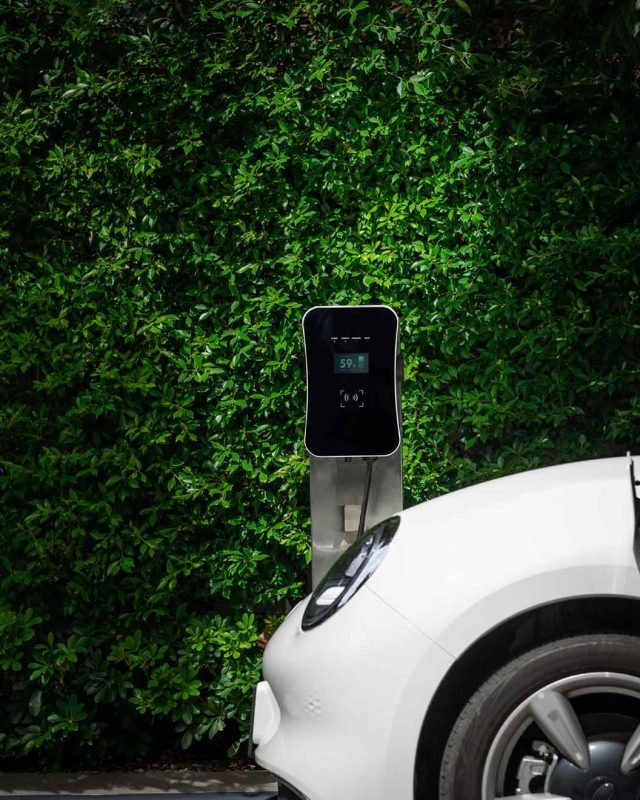Saudi Arabia’s Push for Robust EV Infrastructure and Adoption
Saudi Arabia is making major strides in developing a comprehensive EV infrastructure to meet the demands of a growing electric vehicle market. With the support of Vision 2030, the Kingdom is working to reduce its carbon footprint, diversify its economy, and position itself as a leader in green mobility. Key initiatives include the expansion of fast-charging stations, partnerships with EV manufacturers, and government-backed incentives to encourage adoption. By creating a sustainable and accessible EV network, Saudi Arabia is setting the foundation for an eco-friendly transportation future.
Expansion of Charging Stations with the Electric Vehicle Infrastructure Company (EVIC)
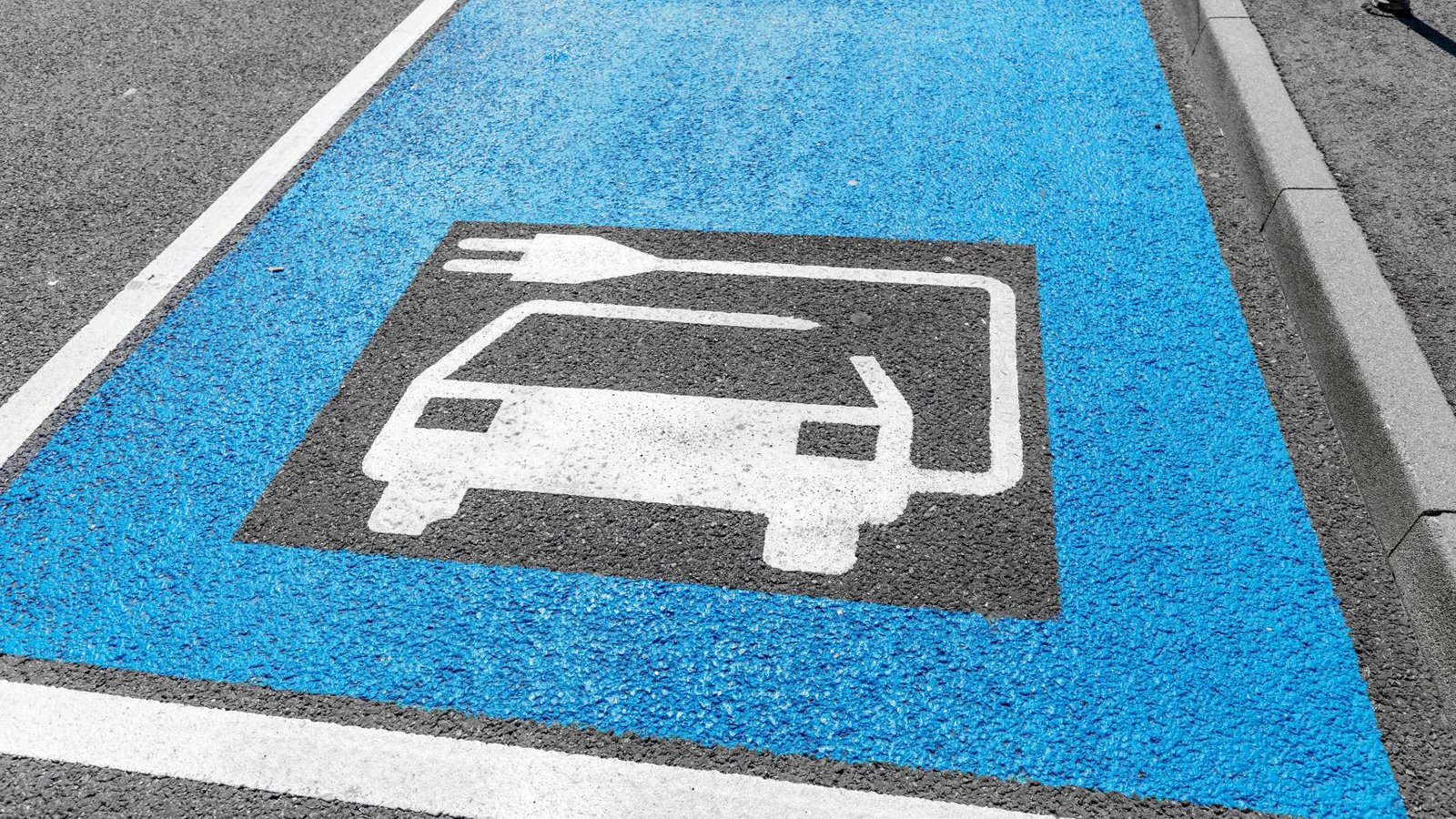
The establishment of the Electric Vehicle Infrastructure Company (EVIC), a joint initiative by the Public Investment Fund (PIF) and Saudi Electricity Company (SEC), represents a critical step toward building a robust EV infrastructure. EVIC plans to deploy over 5,000 fast-charging stations across more than 1,000 locations by 2030, covering major cities and highways. This expansive network will support both urban commuters and long-distance travelers, making EVs a more practical option for everyday use.
The PIF’s 75% stake in EVIC underscores the government’s commitment to fostering a sustainable transportation ecosystem. EVIC’s mission includes encouraging private sector participation, which is essential for establishing a reliable charging network. With a well-distributed and accessible infrastructure, the Kingdom aims to encourage EV adoption, aligning with Vision 2030’s focus on sustainability and economic diversification.
Supporting EV Production and Adoption Through Partnerships
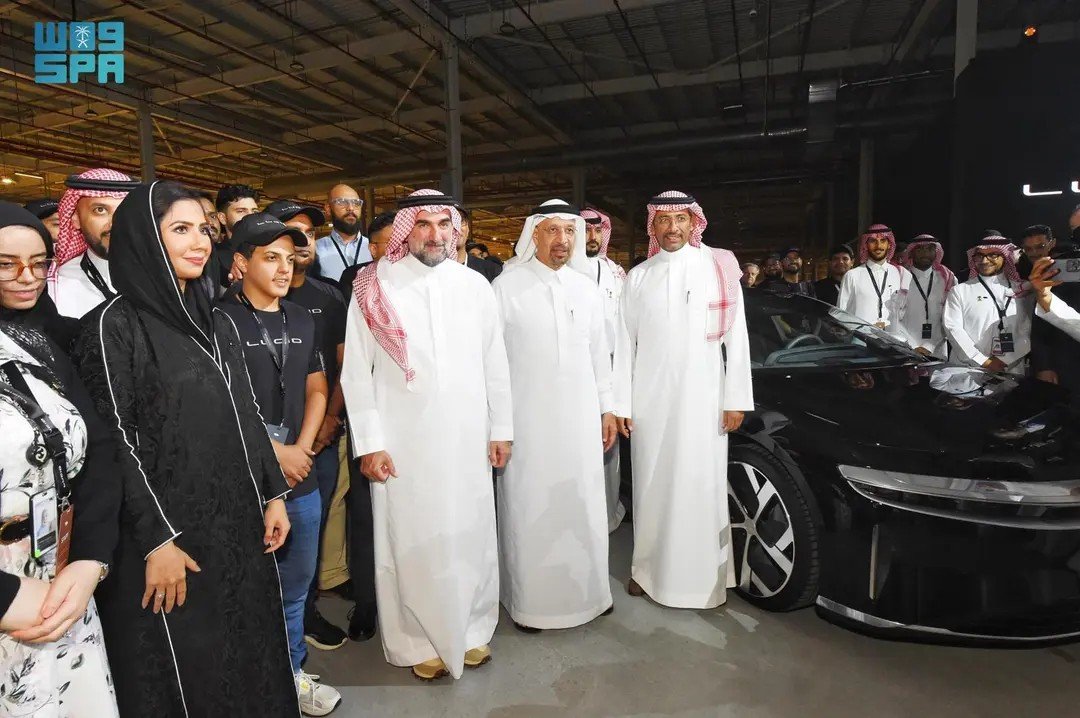
In addition to expanding the charging network, Saudi Arabia is supporting domestic EV production by collaborating with major manufacturers. One such partnership is with Lucid Motors, which established the first-ever car manufacturing facility in Saudi Arabia in 2023. This facility in KAEC is projected to produce up to 155,000 electric vehicles annually, catering to both local and international markets. By investing in local EV production, the Kingdom aims to build a self-sustaining EV market, reduce reliance on imports, and boost its non-oil GDP.
Furthermore, government initiatives are actively supporting EV adoption and sustainable transportation. In February 2023, the Public Transport Authority (PTA) signed contracts for the largest intercity bus project in Saudi Arabia, connecting over 200 cities and governorates with environmentally friendly buses. This network is expected to serve over 6 million passengers annually across 76 routes, integrating buses equipped with advanced technology to reduce emissions. The project aligns with the National Strategy for Transport and Logistics Services, which aims to increase public transport usage from 1% to 15% by 2030 and reduce transportation carbon emissions by 25%. By enhancing the availability of sustainable public transport options, these efforts encourage a transition to eco-friendly travel, promoting a comprehensive approach to a greener EV and public transportation ecosystem.
Anticipated Growth in EV Charging Demand
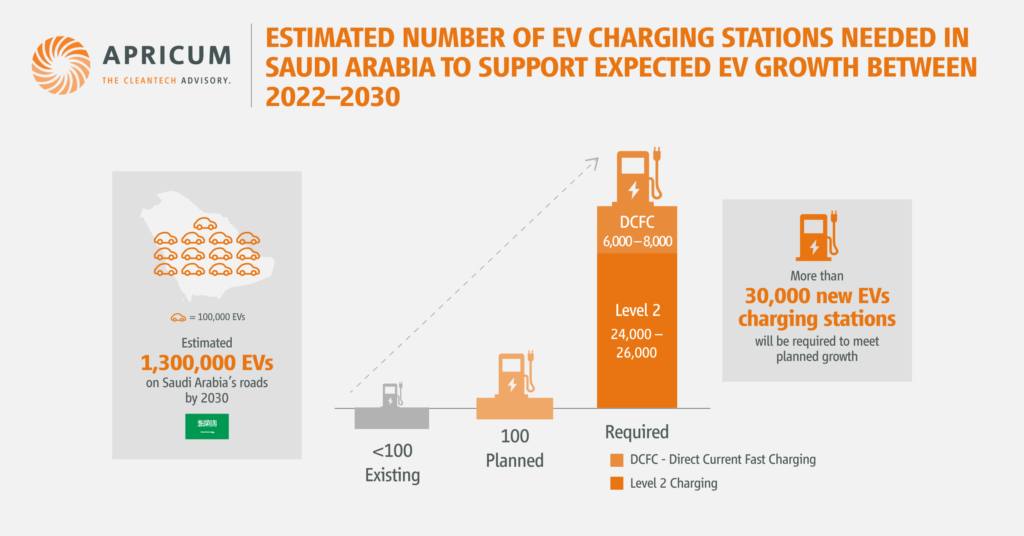
With Saudi Arabia targeting 30% EV penetration in Riyadh by 2030, the demand for charging stations is expected to surge. Current projections indicate that the Kingdom will require between 30,000 to 34,000 charging points to meet anticipated EV growth. This estimate underscores the importance of a scalable EV infrastructure that can adapt to rapid adoption rates. By investing in fast-charging stations and ensuring their strategic distribution, Saudi Arabia is addressing both current needs and future demands of the EV market.
With the country’s high smartphone and internet penetration, the integration of digital solutions like mobile apps for locating and reserving charging stations is likely to become a crucial part of the EV experience in Saudi Arabia. These technologies will provide users with easy access to real-time data, supporting a seamless transition to electric vehicles and encouraging greater adoption.
Shaping Saudi Arabia’s Sustainable Future
Saudi Arabia’s development of EV infrastructure is part of a broader effort to reduce carbon emissions, enhance energy efficiency, and establish itself as a global leader in green technology. Through the implementation of charging networks, domestic production, and supportive policies, the Kingdom is actively laying the groundwork for a sustainable transportation sector. The focus on EV infrastructure aligns with Vision 2030’s goals, positioning Saudi Arabia as an innovator in the Middle East’s green mobility revolution.
In conclusion, EV infrastructure in Saudi Arabia is rapidly evolving with the support of public and private initiatives. By promoting green mobility through comprehensive infrastructure, manufacturing, and supportive policies, Saudi Arabia is well on its way to creating a sustainable, forward-thinking transportation landscape.

